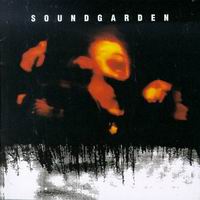Post-Cobain Rock: My top five underrated mid-90s alt-rock albums
For a while there, it looked like the 1990s were going to be something special. Then, on April 8, 1994, Kurt Cobain killed himself, the decade’s most important band was finished, and the alt-rock music scene spiraled into a three-year decline.
By 1997, the Candleboxes and Collective Souls of the world were relegated to the county fair circuit as boy bands and happy-go-lucky pop groups like Smashmouth reclaimed the radio airwaves. Alt-rock, which seemed poised to take over the world in the heady days of “Nevermind” and “Ten,” was so over. That doesn’t mean there wasn’t great music made between Cobain’s death and Smashmouth’s birth. In fact, there are a lot of quality albums from that period that have been unjustly forgotten.
Here are my top five underrated mid-90s alt-rock albums:
 1. Stone Temple Pilots, “Tiny Music … Songs from Vatican Gift Shop” (1996)
1. Stone Temple Pilots, “Tiny Music … Songs from Vatican Gift Shop” (1996)
Just as Nirvana was defined by its first hit, “Smells Like Teen Spirit,” Stone Temple Pilots made a strong first impression with “Sex Type Thing,” an anti-rape song that went over the heads of rape-loving meatheads who dug the mookish-sounding chorus. It’s too bad, because all the subsequent “Pearl Jam poser” slams STP weathered in the press obscured the fact that it was one of the era’s finest hard rock bands. STP’s first album is garbage, but 1994’s “Purple” is loaded with brilliantly hooky arena stompers. Even better is “Tiny Music,” an addictive sugar rush of Beatles and Bowie-inspired rock. Compare it with Pearl Jam’s “No Code,” which came out the same year, and it’s clear which is the more exciting rock band.  2. Counting Crows, “Recovering the Satellites” (1996)
2. Counting Crows, “Recovering the Satellites” (1996)
Counting Crows is the quintessential ’90s alt-rock band: They scored early and often with their debut album, 1993’s “August and Everything After,” quickly built a sizable following, and then just as quickly wore out their welcome with their second album, “Recovering the Satellites.” More rocking and less musically direct than its predecessor, “Satellites” also holds up better a decade later. (It’s also a cheap purchase. I recently found it used for a buck.) Perhaps helped by the absence of overplayed songs like “Mr. Jones,” “Satellites” also boasts greater lyrical maturity and fewer vocal hysterics from embarrassingly-dreadlocked singer Adam Duritz (who actually is a pretty good songwriter if you can get past his resemblance to Sideshow Bob). It’s still not cool to like them, but Counting Crows made a fine, fine roots rock album with “Recovering the Satellites.” 3. Supergrass, “In It For the Money” (1997)
3. Supergrass, “In It For the Money” (1997)
British bands like Oasis, Blur and Radiohead stepped in to help fill the alt-rock void once grunge died, and while they enjoyed some success, they never captured the zeitgeist like Nirvana. One British band that deserved a shot at stardom was Supergrass, which put out one of the decade’s great “lost” classics with “In It For the Money.” A witty and inventive tour of British rock styles, including glam, punk, Merseybeat and psychedelia, “In It For the Money” is an incredibly likeable album nobody outside of music geeks has any chance of liking. It is blissful pop music for non-pop music fans. But what bliss.  4. Soundgarden, “Superunknown” (1994)
4. Soundgarden, “Superunknown” (1994)
I’m not sure whether this should be called underrated. Critics loved it and the album sold millions. But whenever pop culture historians talk about classic albums of the time, “Superunknown” never seems to get mentioned. Soundgarden, in general, is ignored in favor of fellow Seattle brethren Nirvana, Pearl Jam and Alice in Chains. But neither Pearl Jam nor Alice in Chains ever put out a record as consistently great as “Superunknown,” a record USA Today said sounded like Lennon/McCartney writing songs for Black Sabbath. Yes, Chris Cornell’s voice can be grating. And there’s loads of grungey lyrical prattle about rabid dogs and suicide. But overall, “Superunknown” deserves a place on the shortlist of grunge’s greatest albums. 5. Son Volt, “Trace” (1995)
5. Son Volt, “Trace” (1995)
Poor Jay Farrar. When his band Son Volt put out “Trace” in 1995, most people agreed the former Uncle Tupelo star was more talented than his former partner, Jeff Tweedy. Ten years later, most people are like, Jay Who? Nevertheless, “Trace” is a defining alt-country album, and still one of the genre’s best. Farrar is nowhere near as adventurous as Tweedy, so “Trace” can be a little samey. But Wilco doesn’t have many songs that are as good or heartfelt as “Windfall” or “Drown.”


1 Comments:
Thank God Puff Daddy was there to pull us out of the doldrums.
Post a Comment
<< Home